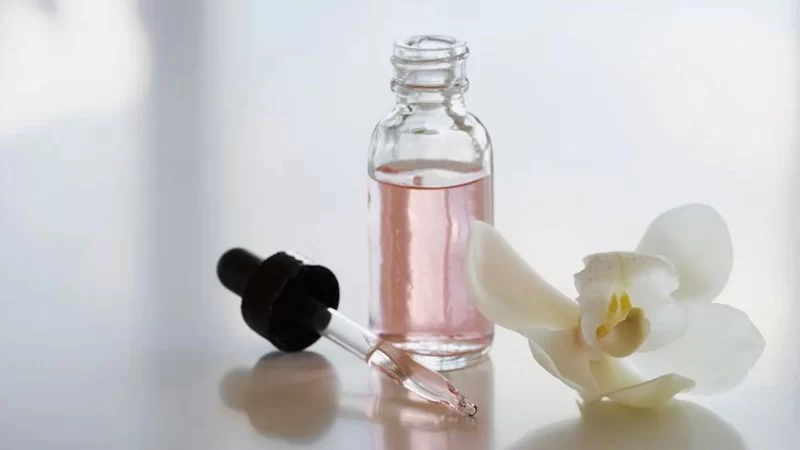- top-10-essential-oils-for-anxiety-and-stress-relief-that-actually-work
- how-essential-oils-impact-the-nervous-system
- detailed-breakdown-of-the-top-10-essential-oils
- real-life-experiences-and-scientific-backing
- how-to-use-essential-oils-effectively
- discover-curated-blends-at-scent-snob
1. Top 10 Essential Oils for Anxiety and Stress Relief That Actually Work
When life becomes overwhelming, it's only natural to seek out calming solutions that are both natural and effective. That’s why so many people are turning to essential oils for anxiety and stress relief. But with countless options out there, how do you know which ones actually work? In this guide, we’ll explore the most effective essential oils backed by science and real-world experiences.
From time-tested classics like lavender to lesser-known gems like neroli, this article dives deep into the top 10 essential oils proven to soothe stress and support emotional balance—whether you're dealing with daily worries or deeper bouts of anxiety.
2. How Essential Oils Impact the Nervous System
2.1 The Science of Scent and the Brain
Essential oils work primarily through the olfactory system. When inhaled, scent molecules reach the brain's limbic system—the center for emotion, memory, and behavior. This is why certain aromas can instantly lift your mood, calm your nerves, or even trigger memories.
2.2 Cortisol Reduction and Emotional Regulation
Several studies have shown that specific essential oils can reduce cortisol levels, the body’s primary stress hormone. Oils like lavender and bergamot have been shown to significantly lower anxiety levels in both clinical and everyday settings.
3. Detailed Breakdown of the Top 10 Essential Oils
3.1 Lavender: The Universal Calmer
Lavender oil is often the first recommendation for anxiety relief—and for good reason. Its relaxing floral aroma has been shown to decrease heart rate, blood pressure, and nervous system arousal. Use it before bed or during moments of high stress.
3.2 Bergamot: The Uplifter
Extracted from the rind of citrus fruit, bergamot has a bright, citrusy scent that lifts the mood while calming the nerves. A 2015 study in Japan found it significantly reduced fatigue and anxiety in elementary school teachers.
3.3 Chamomile: Gentle but Powerful
Often used in teas, Roman chamomile also shines in oil form. It has a sweet, apple-like scent and helps relax muscles and the mind. It’s especially good for nighttime anxiety.
3.4 Frankincense: Deep and Grounding
This warm, resinous oil has been used in spiritual rituals for centuries. Frankincense promotes slow, deep breathing and is perfect for meditation or grounding practices.
3.5 Neroli: The Emotional Soother
Derived from orange blossoms, neroli oil offers a sweet, exotic fragrance that balances mood swings and alleviates chronic anxiety. A personal favorite among aromatherapists for its calming yet uplifting qualities.
3.6 Ylang Ylang: Balancing and Soothing
Ylang ylang’s floral, slightly fruity aroma can calm a racing heart and reduce feelings of anger. A 2006 study reported that it helped participants feel "more calm and more relaxed" compared to a control group.
3.7 Vetiver: Earthy Comfort
Known as the “oil of tranquility,” vetiver has a deep, smoky-earthy scent. It’s ideal for those with sensory overload or racing thoughts, helping ground the body and slow the mind.
3.8 Clary Sage: Hormonal Harmony
This oil is particularly helpful for hormonal anxiety, especially during PMS or menopause. It has a soft, herby scent and can be used in diffusers or diluted for massage.
3.9 Patchouli: A Hug in a Bottle
Loved or hated for its earthy richness, patchouli oil is a grounding option for anxiety triggered by overstimulation. It’s also used in many therapeutic perfume blends for emotional support.
3.10 Rose: The Comforter
Rose oil is luxurious and rare, but incredibly potent. Studies show that even small amounts can lower anxiety in clinical settings, including patients undergoing surgery or dealing with trauma.
4. Real-Life Experiences and Scientific Backing
4.1 A Student's Testimony
One college student shared on a wellness forum that diffusing lavender and vetiver together helped her manage exam-week panic attacks. “It didn’t replace therapy, but it gave me a moment of calm that made everything else easier to handle.”
4.2 Clinical Studies You Should Know
Research from the Journal of Alternative and Complementary Medicine found that patients using bergamot aromatherapy in a hospital waiting room reported lower anxiety scores than those who did not. Science continues to validate what traditional practices have known for centuries.
5. How to Use Essential Oils Effectively
5.1 Diffusers and Inhalers
Using a diffuser is one of the most effective ways to enjoy essential oils. For a quick fix, personal inhalers offer a discreet way to access aromatherapy on the go—ideal for those facing social anxiety or high-stress work environments.
5.2 Topical Application
Always dilute essential oils with a carrier oil before applying to the skin. Massaging oils into pulse points—like wrists, behind ears, or the soles of feet—can help you absorb the calming properties more directly.
5.3 Bath Rituals
Adding a few drops of oils like chamomile, clary sage, or rose to a warm bath can be incredibly calming. Combine with Epsom salts for enhanced relaxation.
6. Discover Curated Blends at Scent Snob
If you’re exploring essential oils for anxiety and stress relief that actually work, you’ll want more than random bottles—you need intentional blends crafted to support your emotional well-being. At Scent Snob, we offer curated collections of single oils and artisanal blends designed for calm, balance, and clarity.
Each product is selected for purity, potency, and emotional benefit—so whether you’re new to aromatherapy or a seasoned scent explorer, we help you find what truly works for your mind and mood.


0 comments